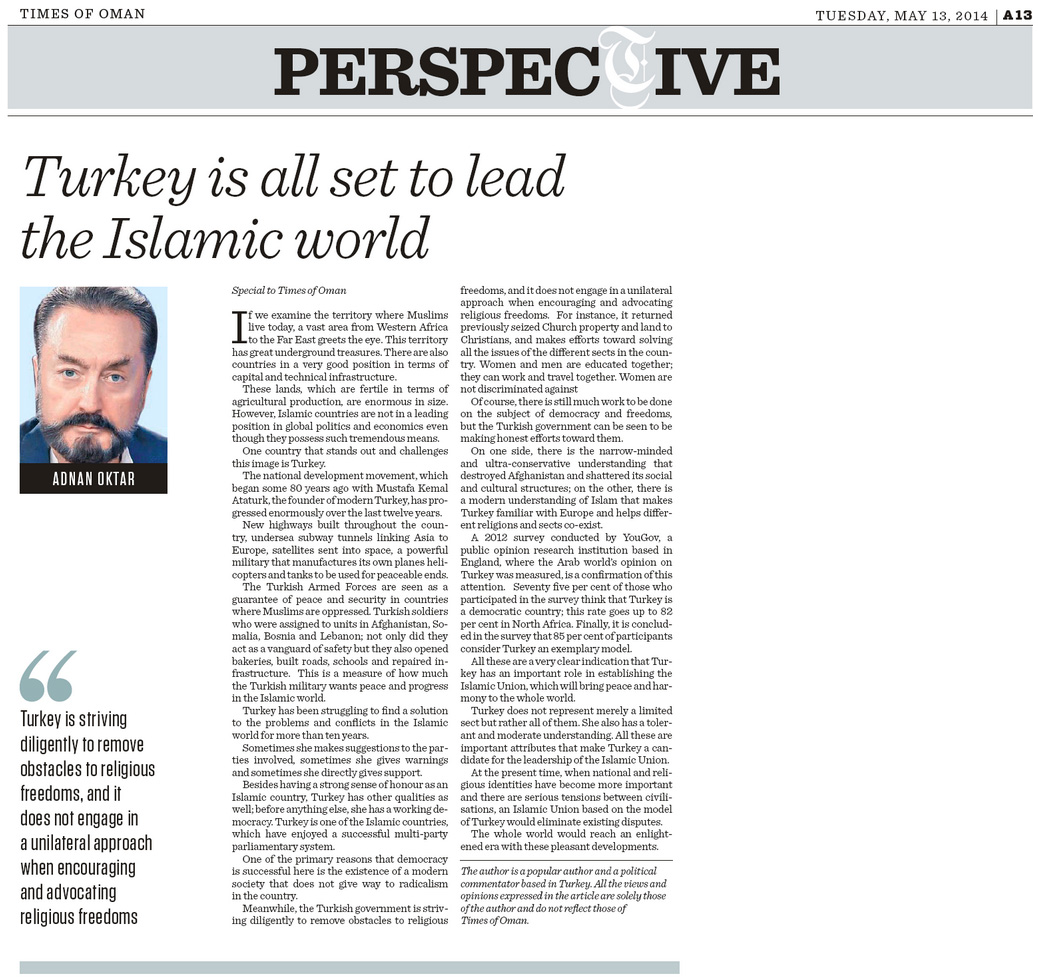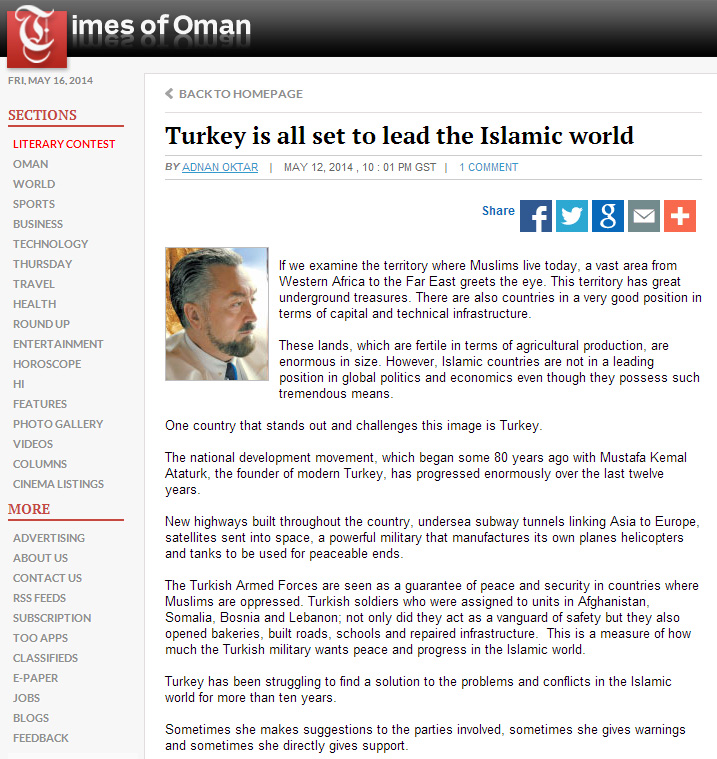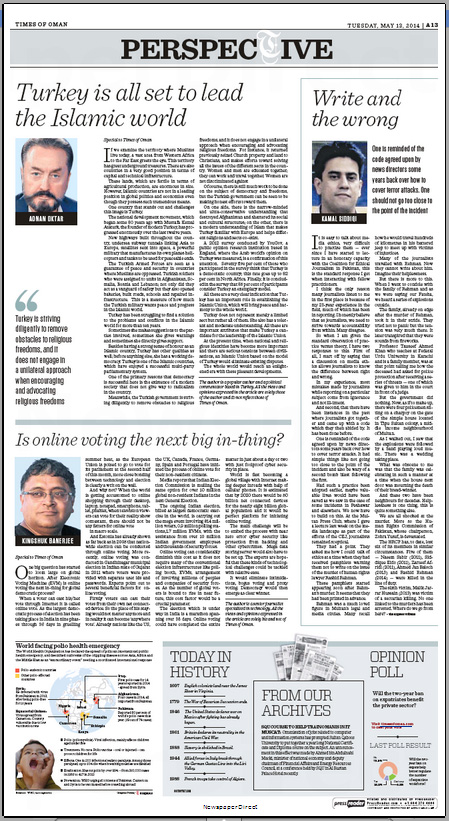

 If we examine the territory where Muslims live today, a vast area from Western Africa to the Far East greets the eye. This territory has great underground treasures. There are also countries in a very good position in terms of capital and technical infrastructure.
If we examine the territory where Muslims live today, a vast area from Western Africa to the Far East greets the eye. This territory has great underground treasures. There are also countries in a very good position in terms of capital and technical infrastructure. These lands, which are fertile in terms of agricultural production, are enormous in size. However, Islamic countries are not in a leading position in global politics and economics even though they possess such tremendous means.
One country that stands out and challenges this image is Turkey.
The national development movement, which began some 80 years ago with Mustafa Kemal Ataturk, the founder of modern Turkey, has progressed enormously over the last twelve years.
New highways built throughout the country, undersea subway tunnels linking Asia to Europe, satellites sent into space, a powerful military that manufactures its own planes helicopters and tanks to be used for peaceable ends.
The Turkish Armed Forces are seen as a guarantee of peace and security in countries where Muslims are oppressed. Turkish soldiers who were assigned to units in Afghanistan, Somalia, Bosnia and Lebanon; not only did they act as a vanguard of safety but they also opened bakeries, built roads, schools and repaired infrastructure. This is a measure of how much the Turkish military wants peace and progress in the Islamic world.
Turkey has been struggling to find a solution to the problems and conflicts in the Islamic world for more than ten years.
Sometimes she makes suggestions to the parties involved, sometimes she gives warnings and sometimes she directly gives support.
Besides having a strong sense of honour as an Islamic country, Turkey has other qualities as well; before anything else, she has a working democracy. Turkey is one of the Islamic countries, which have enjoyed a successful multi-party parliamentary system.
One of the primary reasons that democracy is successful here is the existence of a modern society that does not give way to radicalism in the country.
Meanwhile, the Turkish government is striving diligently to remove obstacles to religious freedoms, and it does not engage in a unilateral approach when encouraging and advocating religious freedoms.
For instance, it returned previously seized Church property and land to Christians, and makes efforts toward solving all the issues of the different sects in the country. Women and men are educated together; they can work and travel together. Women are not discriminated against.
Of course, there is still much work to be done on the subject of democracy and freedoms, but the Turkish government can be seen to be making honest efforts toward them.
On one side, there is the narrow-minded and ultra-conservative understanding that destroyed Afghanistan and shattered its social and cultural structures; on the other, there is a modern understanding of Islam that makes Turkey familiar with Europe and helps different religions and sects co-exist.
A 2012 survey conducted by YouGov, a public opinion research institution based in England, where the Arab world's opinion on Turkey was measured, is a confirmation of this attention. Seventy five per cent of those who participated in the survey think that Turkey is a democratic country; this rate goes up to 82 per cent in North Africa. Finally, it is concluded in the survey that 85 per cent of participants consider Turkey an exemplary model.
All these are a very clear indication that Turkey has an important role in establishing the Islamic Union, which will bring peace and harmony to the whole world.
Turkey does not represent merely a limited sect but rather all of them. She also has a tolerant and moderate understanding. All these are important attributes that make Turkey a candidate for the leadership of the Islamic Union.
At the present time, when national and religious identities have become more important and there are serious tensions between civilisations, an Islamic Union based on the model of Turkey would eliminate existing disputes.
The whole world would reach an enlightened era with these pleasant developments.
Adnan Oktar's piece on Times of Oman:


